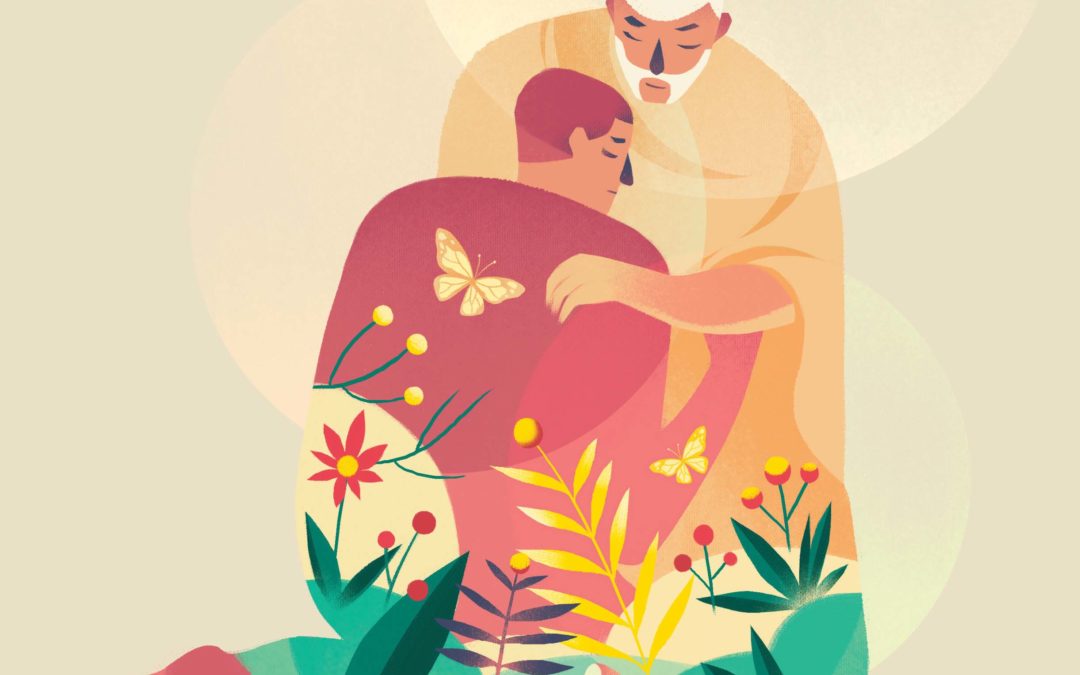by Elizabeth Hunter—
Three weeks before my dental appointment, I started trying to do the right thing. I flossed my teeth twice daily. Someone had suggested this dental boot camp strategy several years ago, so I tried it. Before having kids, I was a daily flosser, righteous and cavity-free. Two kids and three fillings later, I wanted a good report rather than a scolding. It worked. My father-daughter dental team was pleased.
Yet now I was worried: Was I more concerned with the loss of their good opinion than with finding true wellness? Was I trying to maintain the appearance of perfection? That would fly in the teeth of what I was trying to teach my sons—one of whom recently got into trouble at school. “I don’t want to say what happened,” he told me then. “What if you and Daddy think I’m bad? What if you don’t love me anymore?” I responded that he’d never lose our love, but if he had the courage to be honest, he would never have to wonder if we loved him without exceptions.
Still, it’s funny how sometimes we long for tooth-for-a-tooth compensatory justice. Many of us can relate to the rule-following older brother in Jesus’ parable of the prodigal son (see the final “Multiple meanings” Bible study session, p. 20). Lost in resentful self-martyrdom, he refuses to come to the family celebration. And if we’re honest, we can also see ourselves and our society in the little brother. He tries to fill the empty spaces of his life with spending and stuff, and it takes no less than a famine to wake him up (see p. 6 to learn more about the implications of famine).
According to Laurie Jungling (p.14), we read the Bible for devotion, to know more about God and to love our neighbors, and I would add, even our neighbors who are difficult to know. I’ve found myself wondering not only about people in Scripture, but also neighbors in real life: How did she lose her way to begin with? Does she ever get to a place where she can rejoice?
As a child, I watched The Never Ending Story, a movie about heroes who encounter terrible losses, challenges and a friendly, flying dragon before finding new life. In the film, a young boy must pass through the Mirror Gate, a place where, after looking at themselves, “kind people find out that they are cruel…[the brave] discover that they are really cowards [and] confronted by their true selves, most men run away screaming.”
It’s not easy to see and love all of yourself. “Some of us learned self-criticism in families where we struggled to ‘be good’ in order to be loved,” Bev Stratton writes (p. 34). In fact, in our society, women often use mirrors to find flaws…in order to cover them up. Sink your teeth into that.
But what good are grace and mercy to the flawless? What good are grace and mercy if you can’t allow yourself to admit you were wrong? A few years ago, I found the courage to tell my dentists the truth: I haven’t been flossing the way I should, but I’ve been trying to do a better job. My dentists are realistic. They understand. And I continue to journey on, not by the skin of my teeth, as Job said (Job 19:20), but by the grace of God.
Elizabeth Hunter is editor of Gather.
This article is from the April 2018 issue of Gather magazine. To read the full story or more like it, subscribe to Gather.



Our circle at Christus Victor, Naples really really appreciated Mark Allan Powell’s 4-part series! April’s was truly eye-opening! Thank you for excellent publications!!
That’s great to hear, Barbara! Thanks for letting us know!
Sarah Carson
Associate editor, Gather